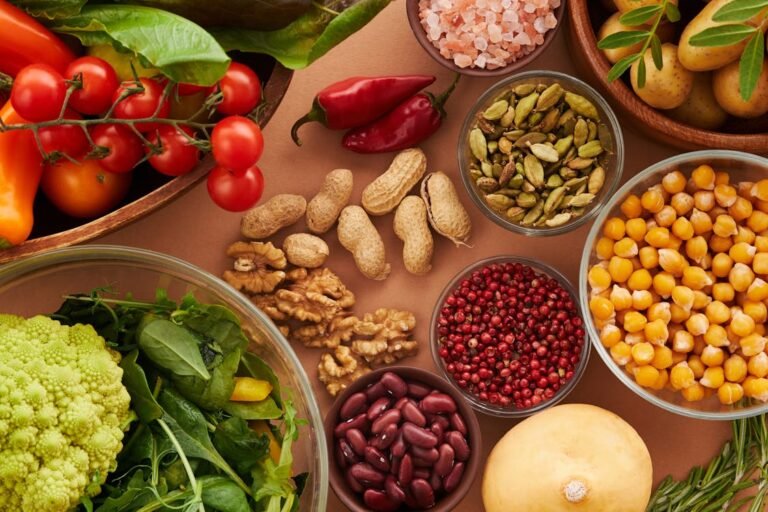Follow us and share.
Nutrition for Obesity Prevention and Management: Keys to Healthy and Sustainable Eating
Discover effective nutritional strategies to prevent and manage obesity. Learn how to create a healthy eating plan, reduce your consumption of ultra-processed foods, and improve your quality of life through a balanced diet.

The Importance of Smart Eating in Weight Control
Obesity is a health condition that can be prevented and managed with a balanced and conscious dietAdopting a proper nutritional approach helps not only with weight loss but also with maintaining a healthy lifestyle long-term. Beyond counting calories, it's essential to learn how to nourish your body with foods rich in vitamins, minerals, and essential macronutrients.
Combining a healthy diet with regular physical activity and stress reduction is key to achieving a balanced body weight. It's also important to remember that obesity isn't just about aesthetics; it's a risk factor for chronic diseases, such as type 2 diabetes, cardiovascular disease and hypertension.
How to Design a Personalized and Efficient Nutrition Plan
Each person has different nutritional needs, so a personalized eating plan is key to preventing and treating obesity. Some key strategies include:
📌 Properly distribute macronutrients:
- Incorporate a balanced ratio of complex carbohydrates, lean proteins, and healthy fats.
- Prioritize natural and fresh foods instead of ultra-processed options.
- Reduce consumption of refined carbohydrates that can contribute to weight gain.
📌 Portion control and meal frequency:
- Choose balanced dishes in adequate portions to avoid overeating.
- Distribute meals into 4-5 daily meals to avoid episodes of extreme hunger and anxiety.
- Avoid the habit of eating when you're not hungry by controlling emotional food consumption.
📌 Proper hydration:
- Drink enough water to aid digestion and regulate metabolism.
- Reduce consumption of sugary drinks that provide empty calories.
- Incorporate natural, sugar-free infusions as a healthy alternative.
📌 Using healthier cooking techniques:
- Prefer cooking methods such as steaming, roasting or grilling instead of frying.
- Reduce the use of industrial oils and margarines that contain trans fats.
Academy of Nutrition and Dietetics – Guide to healthy eating plans.
Nutritional Strategies: Low-Calorie, Nutrient-Rich Diets
Calorie reduction is essential for weight loss, but it must be done consciously to ensure adequate nutrient intake. Some important keys include:
📌 Increased fiber consumption:
- Fruits, vegetables, legumes, and whole grains help prolong satiety and improve digestion.
- Fiber regulates the absorption of sugars and fats, avoiding spikes in blood glucose.
- Improves intestinal health and prevents digestive problems such as constipation.
📌 Quality proteins:
- Opt for lean proteins such as chicken, fish, tofu, legumes, and low-fat dairy.
- Protein helps preserve muscle mass during weight loss and promotes feelings of satiety.
- Avoid processed meats that contain preservatives and excess sodium.
📌 Healthy fats:
- Include avocado, nuts, olive oil, and fish rich in omega-3 for optimal metabolic function.
- Avoid trans and saturated fats found in fried foods and ultra-processed products.
- Control the amount of fat in your diet to avoid exceeding your daily calorie requirement.
Harvard School of Public Health – Impact of diet on obesity.
How to Reduce Consumption of Ultra-Processed Foods and Added Sugars
Excess of added sugars and ultra-processed foods It is one of the main drivers of obesity. To minimize its consumption, it is recommended:
📌 Read nutritional labels:
- Identify hidden names for sugar such as corn syrup, fructose, and dextrose.
- Avoid products with a long list of artificial ingredients.
- Prefer products with lower sodium and preservative content.
📌 Choosing natural options:
- Replace sugary cereals with oatmeal or natural yogurt with fruit.
- Replace soft drinks and industrial juices with infused water or unsweetened tea.
- Include more healthy snacks such as nuts, seeds, or fresh fruit.
📌 Prepare more meals at home:
- Cooking at home allows for greater control over ingredients and a reduction in the use of preservatives and additives.
- Meal planning helps prevent dependence on fast food and unhealthy snacks.
- Involve the whole family in preparing healthy meals to encourage good habits.
World Health Organization – Guide on reducing sugar consumption.
Sustainable Nutritional Approach: Keys to Long-Term Success
Obesity management requires a health-based approach sustainable habits and not restrictive diets. The key is to make food choices that are accessible, realistic, and tailored to each individual.
📌 Promote nutritional education: Knowing the composition of foods helps you make healthier and more conscious choices. 📌 Incorporate physical exercise into your daily routine: Physical activity not only helps with weight loss but also improves metabolic and cardiovascular health. Seek professional support: A nutritionist can help you develop personalized and sustainable weight management strategies.
🌟 Advice: Prioritize natural foods, maintain adequate hydration, and promote nutritional education to make better dietary choices.



